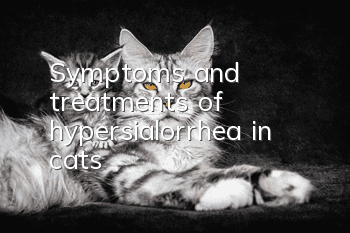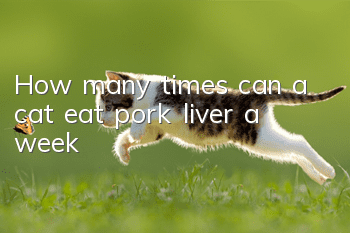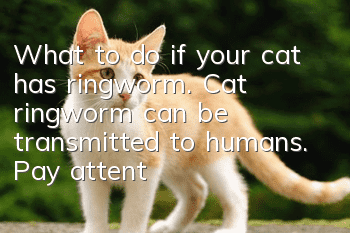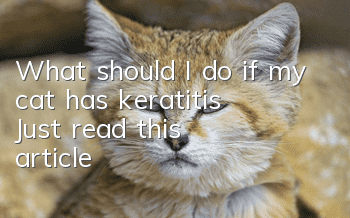Symptoms and treatments of hypersialorrhea in cats

There are many causes of hypersalivation in cats. Many reasons can cause hypersalivation in cats. If your cat suddenly drools a lot, you must pay attention. This performance may indicate that the cat is sick. The editor of Pet Cat Network will analyze for you the main causes of hypersalivation in cats.
1. Stomatitis, pharyngitis, esophageal foreign bodies, gastritis, tonsillitis, submandibular gland cyst, sialadenitis, etc. can all cause excessive salivation; paralysis of the lips, tongue, and pharynx, and injuries to the jaw bone can also cause excessive salivation; epilepsy, Cramps, fright, etc. can also cause excessive salivation.
2. Drug allergy, anti-rat poison, household medicine, and spoiled food poisoning are also common.
3. Infectious diseases such as cat panleukopenia and individual intestinal parasitic diseases can also cause excessive salivation.
Symptoms of hypersalivation in cats
The main manifestation of hypersialorrhea in cats is that cats salivate excessively, which is watery, slightly sticky, and involuntary. Depending on the complications, it may appear slightly yellowish or slightly white. Saliva wets lips, nose, forelimbs and sleeping environment. It is accompanied by symptoms such as not eating, moving less, and losing weight rapidly. Depending on the type of disease, typical symptoms of the primary disease are often seen clinically.
Treatment of hypersalivation in cats
Hypersalivation in cats is mainly caused by oral diseases, systemic diseases, and toxic diseases. If your cat suddenly drools uncontrollably, you must send it to the doctor in time to find out the cause first and then prescribe the right medicine to avoid causing greater pain to the cat.
1. Before the cause is determined, atropine 0.03 to 0.05 ml/kg body weight can be injected subcutaneously to reduce saliva loss.
2. Make a detailed diagnosis, find out the cause, and provide root cause treatment. For example: for rat poison, household drugs, and food poisoning, specific antidotes should be selected. If there is no specific antidote, intravenous infusion of 5% glucose solution and a small amount of cardiotonic and diuretic drugs; if it is caused by epilepsy, spasm, fright, etc., phenytoin can be used Sodium, antiepileptic acid, diazepam, chlorpromazine and other sedatives. If other diseases occur secondary to the original disease, comprehensive treatment can be carried out.
- What to do if Himalayan cats have urinary stones
- How old is a five-year-old cat to a human?
- How to take care of a two-month-old cat that has just arrived at a new home
- Love cats but are allergic? Scientists are here to help you suck cats to your heart’s content!
- Can the cat litter box be placed in the same cage as the cat food bowl?
- Can cats eat shrimp? Is it healthy for cats to eat shrimp?
- Burmese cat appearance characteristics and breed personality
- How to raise a one-month-old kitten? Tips for raising a one-month-old kitten
- The cat has eye mucus in his eyes after eating. It needs to be relieved as soon as possible.
- This cat suffered from severe conjunctivitis in both eyes and became blind. Unexpectedly, it turned out like this a few days later!



